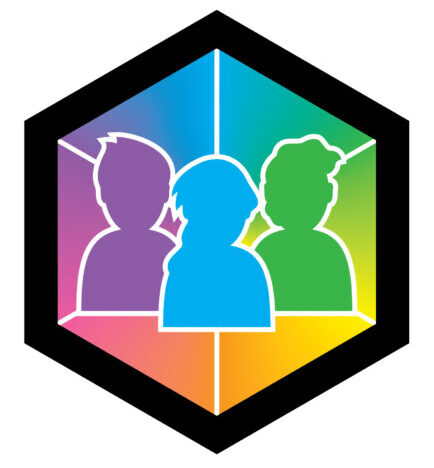Social anxiety affects so many people in so many different ways. Some people just don’t know what to say and are afraid others will think they are inferior. Some don’t know how to start a conversation, some don’t know how to share a conversation, and others don’t know how to keep a conversation going that does not focus on their own interests. Through role-play, we will explore ways to get around these social roadblocks and learn and understand how to communicate more effectively to achieve better social outcomes.
Whether they understand or accept it, role-playing has assisted millions of young people to achieve social understanding far beyond what they possessed before they commenced role playing. Role playing a character who has a different personality than yourself provides unique insights into how other people think, how they react, and how to make positive social interactions with them. All of this social training, performed in a safe environment, will provide tools and strategies for participants to use in the wider community.
Role-playing games have become far more popular in the last 10 years, with people understanding how beneficial these gaming sessions are in developing social skills. More consistent social interactions in safe environments lead to a lowering of anxieties, gains in confidence in social situations, and a better understanding of the social contract.
Studies on the positive effects of role-playing
How ‘Dungeons & Dragons’ Primes Students for Interdisciplinary Learning, Including STEM – KQED NEWS- MINDSHIFT – Paul Darvasi – 18 October 2018
Learning in Dungeons and Dragons – LEARNING SCIENTISTS POSTS, FOR TEACHERS – Althea Need Kaminske – 23 August 2018
Tabletop Role-Playing Games and Social Skills in Young Adults, Honors College, Pace University – Lily Spinelli – Summer 2018
Abstract
This paper explores the relationship between playing tabletop role-playing games (TTRPGs) and the creativity, self-efficacy, and social skills of the players. Eighty-five people ages 18-25 were surveyed on their perceived levels of these three variables, as well as how often they played TTRPGs. Responses of those who did play TTRPGs were compared with results of those who did not play TTRPGs. A statistically significant positive correlation was identified in all participants between creativity and self-efficacy, creativity and social skills, and self-efficacy and social skills. Participants who played TTRPGs scored statistically significantly higher in measures of creativity than participants who did not play TTRPGs. There was no statistically significant difference in the two groups in terms of self-efficacy or social skills. These findings, along with previous studies concentrating on possible benefits of TTRPGs, suggest that there is a strong relationship between creativity and playing TTRPGs, and further investigation into ways TTRPGs could be implemented in the treatment of autistic patients are warranted.
Needs Met Through Role-Playing Games: A Fantasy Theme Analysis of Dungeons & Dragons, University of California, Santa Barbara – Aubrie S. Adams – Kaleidoscope: A Graduate Journal of Qualitative Communication Research – Volume 12 Article 6, 2013
Dungeons & Dragons (D&D) is an immersive fantasy role-playing game (RPG) which allows players to fulfill real-world social needs through interaction. Although D&D may appear to be a game of simple make-believe, the emotions, camaraderie, and accomplishments experienced by players are real, thus suggesting that RPGs have real-world implications for players. Therefore, the goal of this study is to explore the ways in which players fulfill social needs through group communication during the context of D&D table-top role-play. Utilizing Bormann’s (1972) fantasy theme analysis, this study uses a case study approach to identify four themes which emerged within player talk on Facebook: (1) democratic ideologies; (2) friendship maintenance; (3) extraordinary experiences; and (4) good versus evil. Findings provide a description of group members’ real-world needs met through symbolic in-game interactions evidenced by communicative markers.
On the Role of the Die: A brief ludologic study of per-and-paper roleplaying games and their rules – Joris Dormans – December 2006 – Game Studies – The international journal of computer game research – volume 6 issue 1
Conclusion
Playing roleplaying games is an experience that incorporates three important factors. It is at the same time narrative, social and ludic. All these factors are important, although different players might value them differently. Some play for the narrative pleasures, some play to be with friends, while others enjoy the game for the challenges it offers. The rules of roleplaying game are important in so far as these form the main interface onto the fictional game world. Rules may frustrate narrative roleplay, especially when poorly designed. Rules may destroy suspension of disbelief when they are incoherent. But on the other hand rules are important because they also provide the player with agency. Well-designed rules can facilitate and even inspire roleplaying. In this sense roleplaying games are an interesting example of structured and rule-based paidea-type games. The rules of a roleplaying game determine to a large extent the style and disposition of the game system. Game rules can drive the game in a combative direction or introduce mechanics that deal with the sanity of the player’s character, making this sanity into a significant factor of the game. Although players are free to interpret any game as they see fit, it is best to choose a game system that promotes the type of play you like. This is what constitutes the role of the die.
